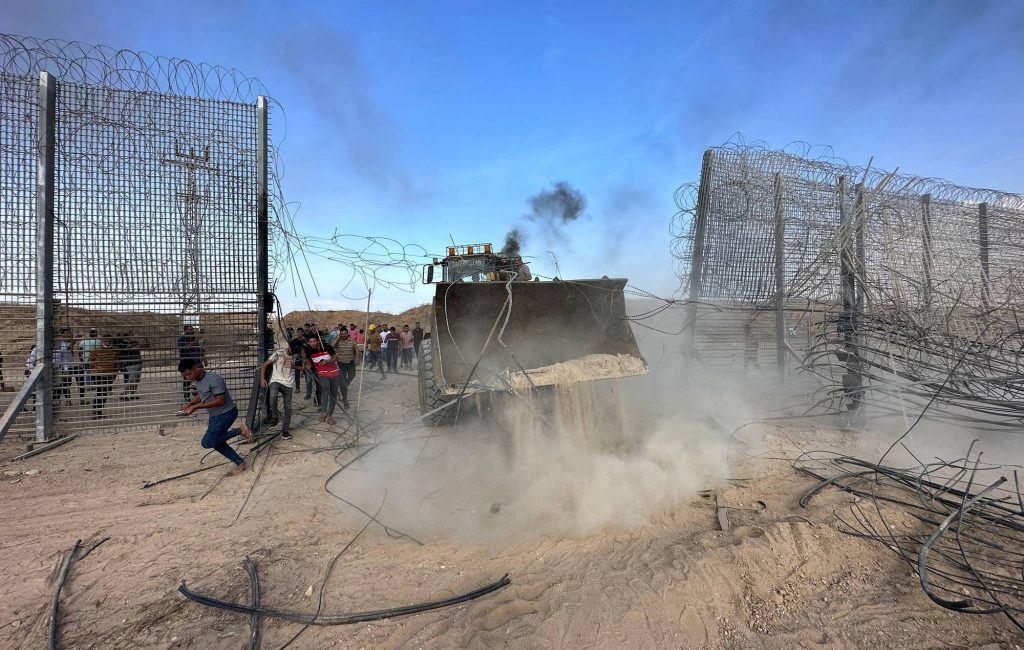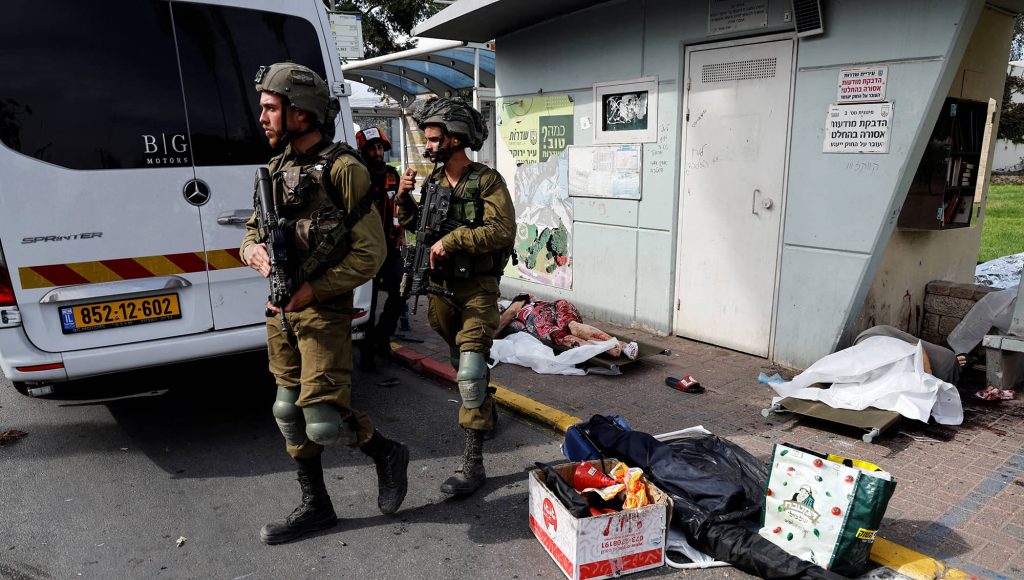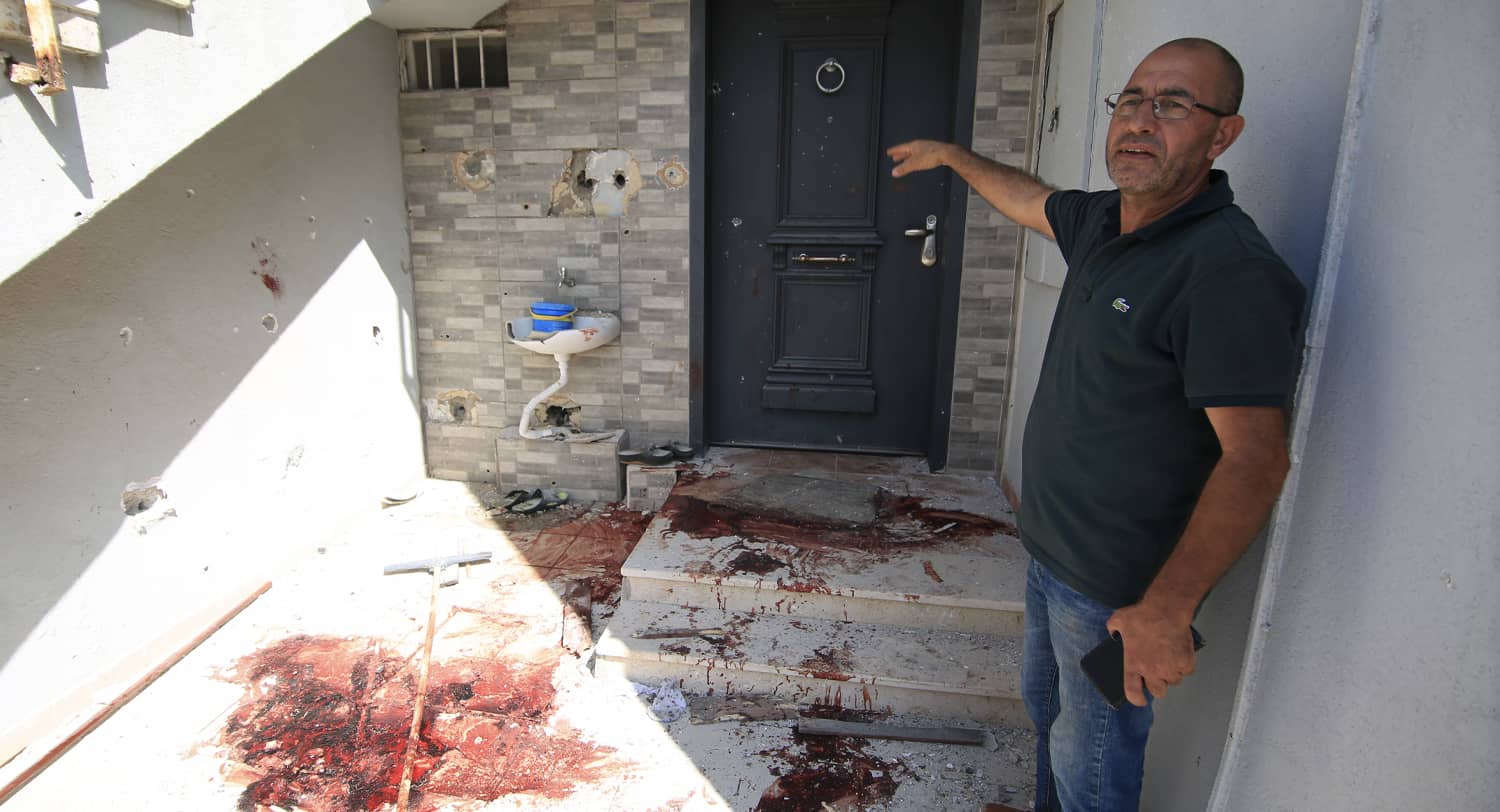Israelis woke up on 7 October 2023 to a day of grief, outrage, and ultimately, incomprehension.
It was not the missiles which mattered. Israelis have grown accustomed to missile attacks from Gaza. The horrors which gradually unfolded resulted from an overland breach of the Gaza border defenses. At various points in time on October 7, 14 rural villages and three IDF forward bases were overrun and held by Hamas and Islamic Jihad terrorists. Two small towns near Gaza, Sderot and Ofakim, were invaded for long hours. Hundreds were slaughtered in the streets, in their cars on the road, in a desert rave attended by young people, and in their homes. Children and elderly women were forcibly taken to Gaza, and the body of a dead young German woman from the rave was put on display. Young children in a kibbutz home hid in a closet with the bodies of their parents lying nearby. The heartbreaking reports kept coming in, with expressions of international support bringing little by way of solace.
With the number of murders exceeding 700 (and the count still far from final), the wounded at more than 2150, and hostages reportedly at 130, including children, the question that came first to many in Israel was: How Could This Happen?
Fifty years and a day from the Egyptian and Syrian surprise invasion on Yom Kippur of 1973, the IDF was once again caught unprepared. Once again it happened on a high holiday, with consequences not witnessed in Israel since the desperate days of the War of Independence in 1948. There will surely be a commission of inquiry, not unlike the Agranat Commission of 1974, as Amir Oren reminded JST readers But well before this happens, several initial observations can be offered.
Hamas Improvements in Planning and Tactics
The military wing of Hamas meticulously planned and coordinated an operation which included an unprecedented use of sophisticated home-made solutions. This in turn raises further questions as to the failure to learn of such plans, or detect the work done on technical devices. Specifically, the key to the border fence breach was the use of small bombs dropped from drones, which were used to disable tanks as well as destroy the monitoring cameras guarding the fence. The Hamas operators managed to maintain strict secrecy as these preparations were underway – which incidentally, gives the lie to the claim that the attack was a spontaneous response to Israeli actions in Jerusalem in the prior week.

The Strategic Intelligence Failure
The intelligence failure begins at the strategic level of misapprehending Hamas intentions. Over the preceding two weeks, the Hamas “de facto government” in Gaza, led by Yahia Sinwar, seemed to be angling for more Qatari money (brought in suitcases full of cash, since the Palestinian Authority in Ramallah controls the banks and refuses to help what they see as a rebellious province) and for more workers to be allowed into Israel, which the Netanyahu government was willing to concede. Israeli analysts concluded that Hamas is steadily becoming more concerned with running a government rather than a terrorist attack against Israeli civilian targets. Whether or not Sinwar knew this or was used as cover – we may never find out. His indirect dialogue with Israel through the good services of the Egyptian Intelligence Service served as cover for the well-guarded plans of the Hamas military wing.
As commander of the Hamas military wing in Gaza, Muhammad Dheif has survived past assassination attempts (but was maimed in one of them) and was clearly the mastermind behind this well-planned and meticulously executed assault. The Hamas leaders in exile, hosted by the State of Qatar and joyously monitoring events from Doha, provided the vital link to Iranian support. All the while, the Israeli Directorate of Military Intelligence (DMI) as well as the Shin Bet (the internal security service, with jurisdiction also over Palestinian affairs generally), responding to a rise in terror attacks in the West Bank, concluded that the Gaza border could be held with fewer troops, with 21 battalions diverted over the last few months to the West Bank, trusting that an incursion into Israel from Gaza was unlikely. Hence also what seems to have been a reduced level of alert.
Another, less explicable failure occurred at the tactical level of intelligence gathering. The key asset at the crucial moment on the early morning hours of October 7 should have been visual observation of the penetration point and a timely alert. But using drone attacks, as indicated above, the Hamas attackers apparently bombed and neutralized the long-range observation unit (staffed by young IDF women soldiers) and the compound they were working from. Hamas rendered the IDF blind for a painfully long period of time. A better prepared arrangement for redundancy in monitoring the border could have made this much more difficult to do.

IDF Operational Failure
To this was added what some observers, particularly MG (res.) Yitzhak Brik, a former tank officer and later IDF ombudsman, have been warning about for the last 15 years. The IDF, once upon a time a well-trained and relatively large military based on its reserve armored formations, has become much smaller, less disciplined, less well trained (since the reserves are rarely called up), poorly prepared for ground warfare and maneuver, and much too reliant on airstrikes, precision munitions, and highly specific intelligence. As a result, there was little that could compensate for the lack of intelligence on 7 October.
While individuals and special forces units did fight with great bravery, and indeed suffered painful losses, it took much too long for the IDF formations to be there when they were needed. For much of the day the residents of the area Israelis call “the Gaza envelope” – the town and villages surrounding the Gaza Strip to the east – felt abandoned to their fate.
The task ahead, despite the immense complications posed by the hostage situation, and by the danger of the conflict expanding to the northern front with Lebanon, is to put an end to the ability of Hamas (and Palestinian Islamic Jihad) to constitute a threat in the future.
These organizations may have gained a short-term tactical success. But they also made the profound mistake of awakening the deepest fears and emotions of the Jewish people. Mass slaughter of civilians, abuse of captive children: these evoke powerful reactions that will not be quelled until the perpetrators in Gaza and elsewhere (including Qatar) have paid the ultimate penalty for these acts. While the social networks are flooded with expressions of Palestinian “pride” for what they wrought, one is bound at the end of these bitter days to wonder about the sanity of those who chose to inflict such atrocities on a much superior military power – and still hope they can survive the ordeal they have now brought upon their own people.



